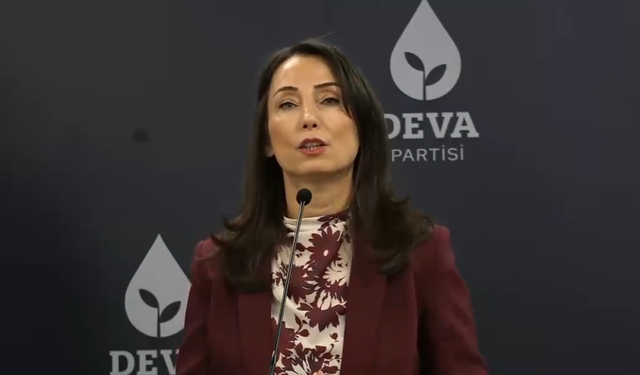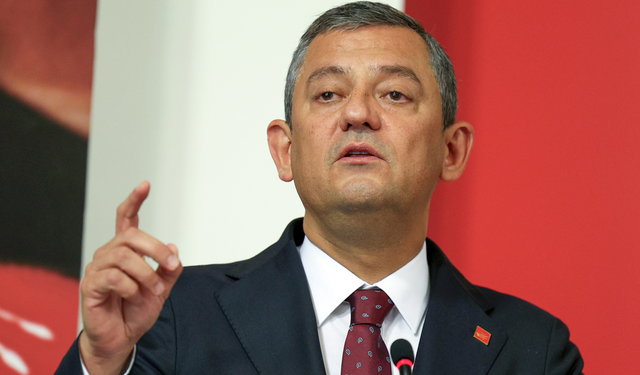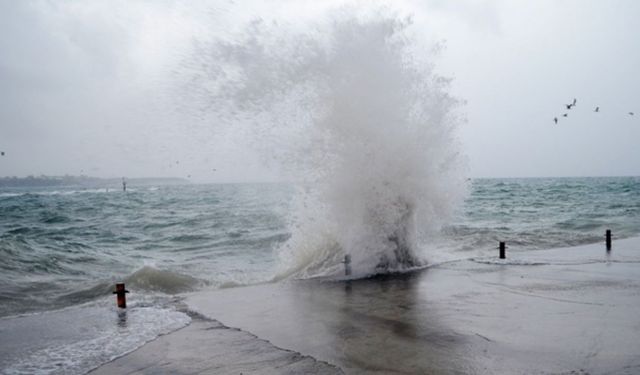For weeks, all eyes have been focused on the Russian military deployment near Ukraine. Today, the country is at the forefront of great power competition that is likely to dominate international relations for the forthcoming decades, according to some. Do the diplomatic talks, heated rhetoric, and military mobilization, which have yielded no results lately, show that Ukraine is on the brink of war? Why does U.S. President Joe Biden claim that Russia is getting prepared to invade Ukraine? Is Russia really aiming to strengthen its attack on Ukrainian sovereignty or is it a kind of bluff about important concessions?
BEFORE THE ACTUAL START OF THE WAR, THE CONDITIONS ARE BEING MET
In addition to Russia's effectiveness in Syria, Libya, Belarus, Venezuela, and even Hungary, the Ukrainian issue has become more critical in terms of intensifying Russian pressure on NATO. It can be stated that Russia's aggressive attitude in Ukraine has triggered the greatest security crisis in Europe since the Cold War. Indeed, it is clear that the deployment of Russian military forces along the Ukrainian border for a while is in any case posing a threat to the West. However, according to some, this mobilization is not strong enough to allow for the high-intensity conflict we envision between Russia and Ukraine; since, it was known that Russia had sent intelligence, surveillance, and reconnaissance (ISR) as well as electronic warfare systems and logistics including modern fighters and air defense systems, instead of major combat platforms and units. However, Russia seems to have reviewed in recent days its current shortcomings in the conditions for a possible attack on Ukraine. Since early January, reports that it has deployed tens of thousands of troops and hundreds of armor pieces to the Ukrainian border (despite the Kremlin's denial) have greatly fueled concerns in Europe that Moscow is in preparation for a full-scale invasion of its neighbor.
One of these concerns arises from the fact that Belarus and Russia are operating for a large-scale joint military exercise called Allied Resolve near the Ukrainian border; as this exercise provides an opportunity for Russia to deploy high-level military capabilities in the region. What is more, according to some, the recent news about cyberattacks on Ukrainian government websites by a group of hackers affiliated with Belarusian intelligence services prove that cyber actors are testing accesses and probing various networks to be exploited prior to the invasion.
On the other hand, the New York Times reports that Russia has been gradually evacuating its embassy in Kiev are interpreted as another strong indication of the upcoming military activity. Although Moscow has rejected the report, some believe it is likely that Russia has begun to create the conditions for a possible state of war in Ukraine.
Ukraine's Black Sea port, Odessa, is designated as the most critical point in the case of such a war, as the passage of Odessa under Russian control risks cutting off Ukraine's maritime line of communication and supply with the rest of the world. In addition, if Russia controls Ukraine's ports, amphibious forces can more quickly bring personnel and equipment closer to the front lines in the tough situations that land forces to encounter in southern Ukraine. In this regard, it seems that Russia is likely to blockade Odessa before the conflict begins. The entry of Russian naval forces into Ukrainian territorial waters around Odessa, therefore, would be a sign of Russia's intention to escalate tensions.
It is noted that Russia has recently diverted amphibious forces loaded with equipment and personnel from the Northern and Baltic fleets to the Black Sea, as it did in March and April of last year. It is noted that Russia has recently diverted amphibious forces with equipment and personnel from the Northern and Baltic fleets to the Black Sea, just as it had done in March and April last year. According to experts, amphibious attacks are among the most complex and costly of military operations, and the Russians have never had such an attack in their history. The movement of Russian amphibious ships from the Baltic to the Black Sea poses a high risk if significant resources are not allocated to training and landing exercises. For this reason, considering that Russia's wide land border with Ukraine has sufficiently increased its mobility, it does not seem meaningful for Russia to take risks by taking action from the sea. However, the topography factor, which is adversely affected by the winter attack, elevates the risks in a possible land conflict. Thus, the hypothesis of Russian amphibious forces bluffing Ukrainian land forces seems more likely than that of Russia carrying out a solid war plan.
THE BIGGEST CONCERN IS TO RESIST THE RUSSIAN OCCUPATION
If Russia is serious about invading all or most of Ukraine in the long run, Moscow will have to suffer the same serious consequences in return. In addition to the economic cost of the war and the discontent of the population, the consequences that the West to impose on Russia might also shake the geopolitical balances. It is also worth noting that U.S. Secretary of State Antony Blinken, after meeting with Russian Foreign Minister Sergey Lavrov on Friday, warned that if Russia invaded Ukraine, there would be "a severe and a united response". If Russia still chooses to fight, what will be the guarantee that it will win this war is also highly debatable. It seems that it will not be easy for Russia to keep Ukraine under its control after the invasion.
It is known that, since Russia occupied parts of Ukraine eight years ago, Ukraine has received billions of dollars from the U.S. defense aid. Today, it is possible to say that Ukraine is much more well-prepared for a possible Russian attack than in 2014. As matter of fact, Ukraine has no other security concern than to devote all its attention to resisting the Russian invasion for now.
CONSEQUENCES OF BLUFFING
While it is not clear yet whether Putin has decided to conduct a large-scale military operation in Ukraine, the conditions for such military action seem to have been established on the ground. Even if it is claimed that there is no established link between the aforementioned military mobilization and the Ukrainian crisis, it is likely that these actions are part of a larger Russian hybrid warfare campaign targeting the United States and NATO. In other words, although Putin does not have a full-scale invasion of Ukraine in mind, it is clear that his provocation is intended to try to divide the Western allies.
In this context, there is an important point to consider: If Russia does not attack Ukraine despite all these military movements (if it is a bluffing strategy), the United States and European countries might hesitate to send aid to Ukraine in the future Russian military reinforcements. Such hesitation could probably offer Russia the opportunity to get what it wants.












